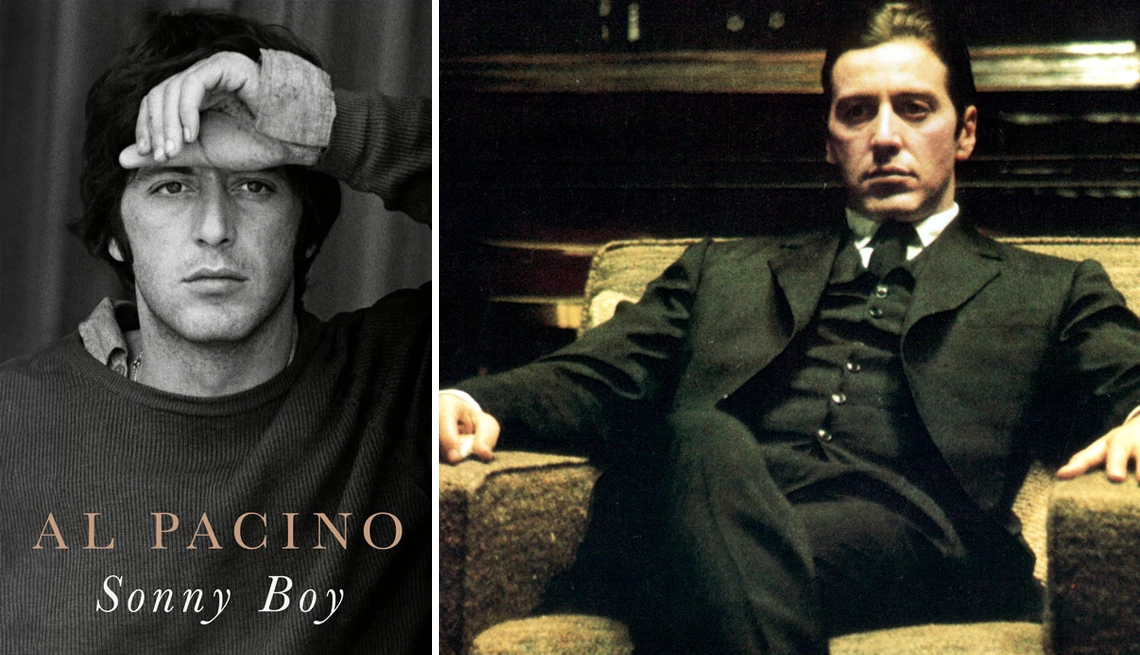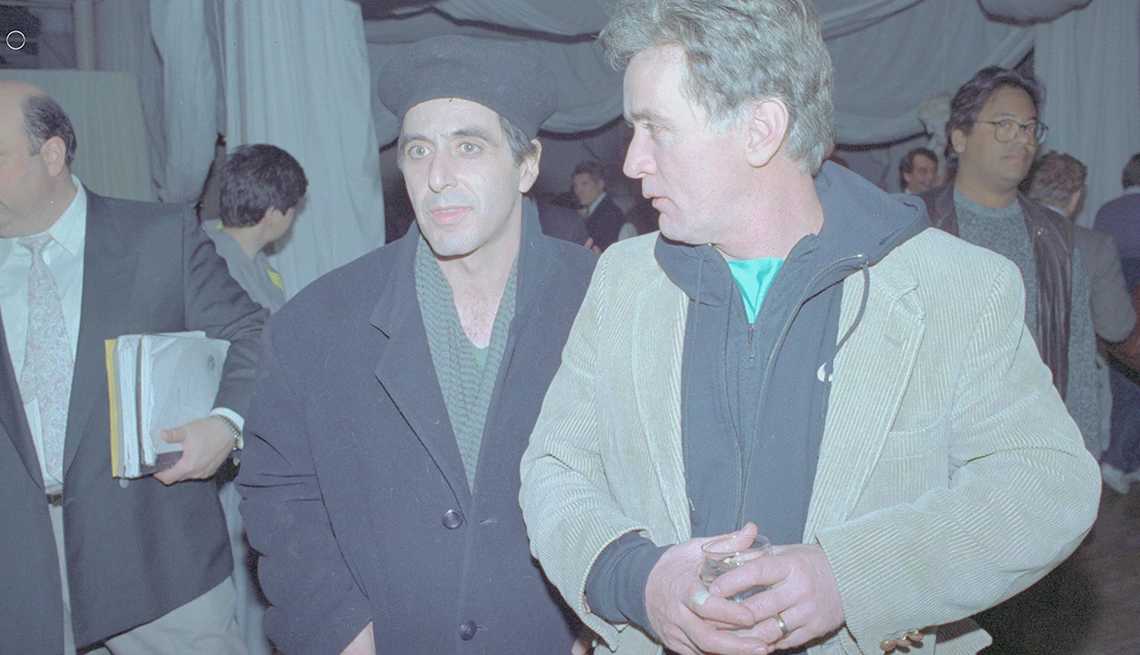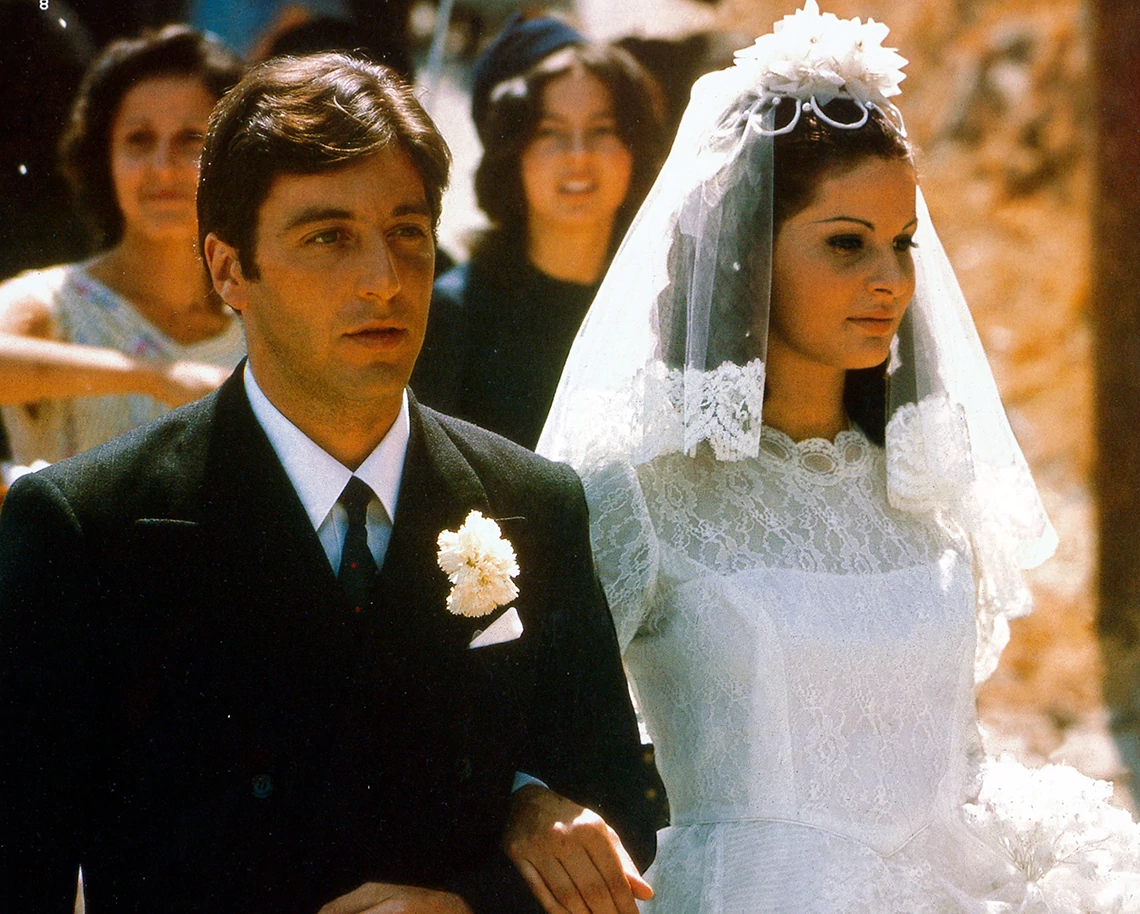AARP Hearing Center


Al Pacino, 84, came from a gritty childhood in the South Bronx to establish himself as one of the most iconic film stars. In his new memoir, Sonny Boy, the intense, brooding actor details his passion for his craft and not-always-smooth rise to the Hollywood A-List — including how he landed and nearly lost his defining role as Michael Corleone in 1972’s The Godfather.
Here are 12 things we learned about Pacino from his new book:
1. His upbringing as an only child was highly unstable
Pacino’s parents split up when he was two, and he barely knew his father. His anxious mother, Rose, attempted suicide when he was six, and when he was 22 she died after choking on pills. It’s not clear whether she intended to kill herself, Pacino writes: “When drugs are involved, people often die when they don’t intend to kill themselves. I don’t know that she did. I’d like to give my mother that benefit of the doubt, that dignity, to be fair to her memory.”
His maternal grandparents, with whom he lived in a walk-up tenement, offered him crucial emotional stability.
2. He felt destined to be an actor
Pacino showed so much acting promise in junior high school plays that a teacher scaled the five flights of his tenement to tell his grandmother, “This boy must be allowed to continue to act. This is his future.” After performing in a series of school productions, he writes, “I must have been ok at [acting], because a guy came up to me after one performance and said, ‘Hey, kid, you’re the next Marlon Brando!’ I looked at him and said, ‘Who’s Marlon Brando?’”
3. Pacino cheated death more than once
Around the age of ten, he was “ice skating” in sneakers on the frozen Bronx River, leaping in the air like a dancer and showing off for his friend Jesus. Then the surface broke and he fell into the frigid waters, unable to crawl out. “I think I would have drowned that day if it wasn’t for Jesus Diaz,” who pulled him to safety with a stick, Pacino writes. He also says he almost died when he had COVID a few years ago: “I didn’t have a pulse.”
4. He wasn’t great at non-acting jobs
Before stardom, Pacino couldn’t seem to keep any job for long. He was fired as a busboy for eating leftovers while clearing tables (“that’s how hungry I was”), let go as a moving man for wandering off into an office Christmas party (“I was having a little food, sipping a Scotch, and flirting with a couple of girls”), and dismissed as a Carnegie Hall usher for seating people in the wrong rows (“I always felt, who cares where you sit when you go to the movies or a play or a concert?”).









































































You Might Also Like
Andie MacDowell Embraces Her Career, Her Family and Her Gray Hair
Actor stars with Michael Keaton in the new comedy ‘Goodrich’Retta Finds Humor in Touring America’s Ugliest Homes
Just in time for Halloween, actor hosts new HGTV show, ‘Scariest House in America’These Destinations are Celebrity Approved
Actors, authors share their top spots around America
Recommended for You